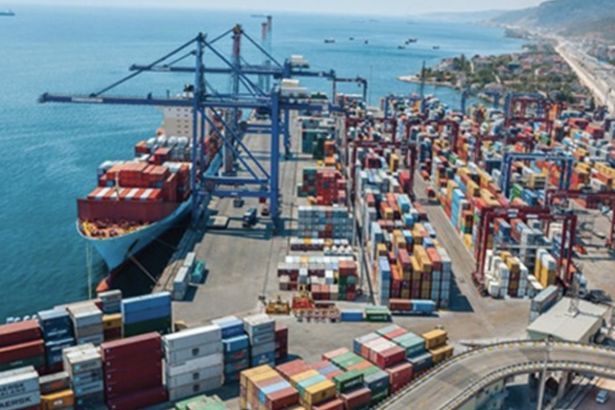Instability of Turkish economy deepens

An economic trauma for Turkish economy sighted on horizon?
Turkish Deputy Prime-minister Mehmet Şimşek said the effects of price hikes for oil and dollar currency are not as bad as it seems. The world of ‘‘new prices’’, which is considered to be non-transitory to a certain extent, can lead major breakages in Turkish economy and new arrangements may be at the top of the Turkish government’s agenda…
As the dollar exchange rate rises to 4,40 Turkish lira and oil prices to $77, Turkish Deputy Prime-minister Mehmet Şimşek said that there is a general fluctuation in currency markets, and real sector will not be affected by these price hikes since the effects of price hikes for oil and dollar currency have indirect positive effects as well as direct negative effects on economy. Şimşek also claimed that everyone ‘‘sees the glass as half empty’’; but in fact, ‘‘more than half of the glass is full’’. In addition to the increase in tourism receipts, the rise in the revenues of OPEC member countries in parallel to price hikes for oil would also affect export revenues positively.
So, is the Turkish Deputy Prime-minister right? Is there any positive development in Turkish economy?
Apart from the increase in tourism receipts, Şimşek’s hypotheses seem to be controversial. Since the beginning of 2018, the depreciation of the Turkish lira against the dollar has been almost 10%. In the same period, oil price has increased by 17%. The price hike for oil affects intermediate goods produced by using oil and the prices of end products as well as its great impact on all energy raw materials. As a matter of fact, imports increased more rapidly than exports in the first quarter of the year, and foreign trade deficit of Turkey has risen by 64%.
RETURN TO ‘THE OLD DAYS’ NOT ONLY IN OIL PRICES BUT ALSO IN CURRENT DEFICIT
As the oil prices increased 24% in 2017, Turkey’s imports increased by approximately 18%. In this increase, one of the most crucial factors was the price hikes for oil and other commodities. Before the U.S. President Donald Trump’s decision to withdraw from the nuclear agreement signed with Iran, various institutions estimated oil prices are expected to reach a level of $80 by increasing by 23% in 2018. Yet, it is anticipated that Trump’s decision will rise the price expectations after the U.S. withdrawal from the nuclear agreement with Iran.
An increase in oil prices by more than 20% in 2018 means that total import has reached almost $280 billion. Even at the best, exports are expected to remain at the level of $100-175 billion due to the constraints on production and market structure, while foreign trade deficit is expected to exceed $100 billion, despite the additional demand the Turkish Deputy Prime-minister Mehmet Şimşek referred. Moreover, there is no a possibility for a very high rate of increase in 2018 and 2019 due to the capacity constraints in certain sectors particularly automotive, machinery and electrical equipment industries providing significant contributions to exports of Turkey.
Even if the evaluations predicting the tourism receipts, which were around $26 billion in 2017, might increase to $32-34 billion in 2018 are taken into consideration, there will be a substantial increase in the current account deficit. It is expected that the current account deficit, which was $47 billion in 2017, might exceed $60 billion in 2018. The external financing need of $60 billion to meet the current deficit becomes an important burden by the depreciation of the Turkish lira.
In addition to these, the price hikes do not consist of only oil, so other commodity prices also increase depending on international developments.
IS THE ‘REAL SECTOR’ SECURE?
Turkish Deputy Prime-minister Mehmet Şimşek had underlined that the ‘‘real sector’’ in Turkey is strong and secure. Yet in a report published at the beginning of the week, the Institute of International Finance (IIF) indicated that Turkey and Argentina are the two countries that have the highest reliance on FX debt among emerging market countries and this situation poses a serious risk for these countries. In Turkey, almost 60% of the total debt is in foreign currency. Although it is possible to convert internal debts to the Turkish lira and to prefer debt restructuring, the direct foreign debts of Turkish companies are around $160 billion. Despite all the additional regulations, it seems very difficult to manage their debts for companies whose majority of their revenues is on the basis of the Turkish lira.
AN ECONOMIC TRAUMA IS INEVITABLE IF THE US SANCTIONS ARE IMPOSED, TOO
In addition to the U.S. sanctions to Iran, if the U.S. decides to impose sanctions to Turkey as part of the cases of American pastor Andrew Brunson* imprisoned in Turkey on ‘terror charges’ and Hakan Atilla, who was the Deputy Chief Executive of state-owned Halkbank of Turkey imprisoned in the U.S. due to the violation of embargo through illegal trafficking in gold trade via Iran, Turkey and Dubai (UAE), the Turkish economy will become ‘‘unmanageable’’ and the operation of big debt service coverage ratio will be difficult for Turkey, according to the experts.
It may be one step closer to the process in which the state directly and openly undertakes further risks of both banking and real sectors along with a possibility of several ‘‘eliminations’’…The world of ‘‘new prices’’, which is considered to be non-transitory to a certain extent, can lead major breakages in Turkish economy and new arrangements may be at the top of the Turkish government’s agenda.
[*An American pastor, who has lived in Turkey for more than two decades, was indicted on charges of helping the Fethullahist Terrorist Organization (FETÖ), who is widely believed to be the primary suspect of the failed July 15 coup in 2016]



